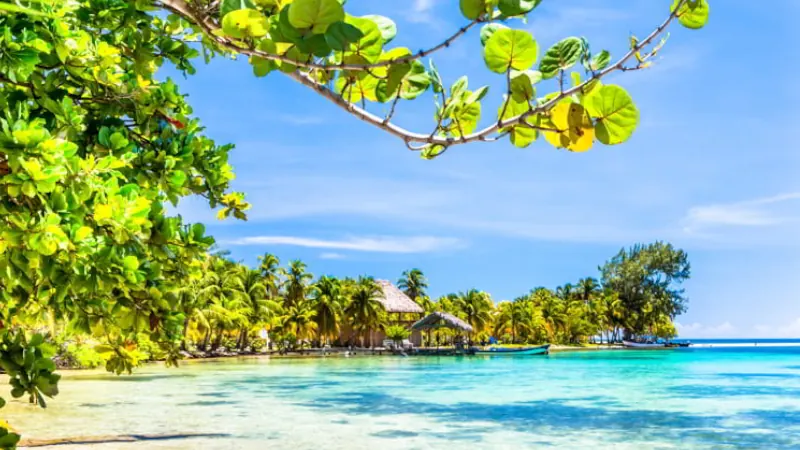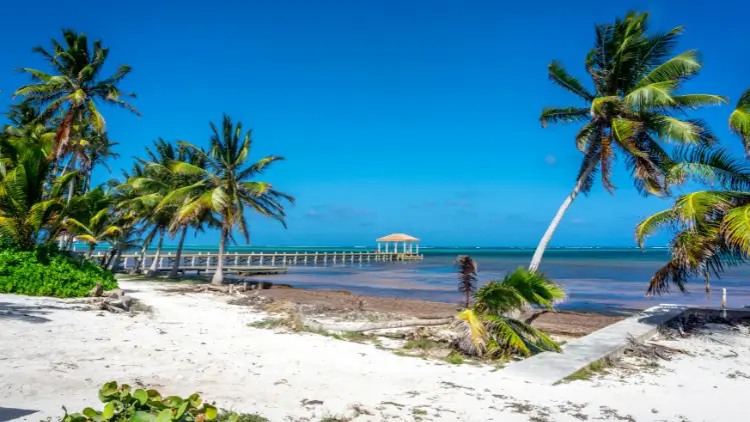Savoring The Simple Life In Belize
For Kelly Demele, the decision to move overseas came in a flash. “I was 58, living in Tampa, and it...
Top Destinations:
Whether you’re looking for fun and sun, a peaceful retirement, or the chance to earn some extra income, you’ve got a real world of opportunity open to you… In short, we’ve done our best to narrow down your best options, but only you can decide the right country for you.
Best For:
How Much Will It Cost You To Live Overseas?
The only honest answer is, we have no idea. And neither does anyone else. The only one who can answer that question is you. Here’s the most important thing to understand about budgeting your new life overseas…
Follow Us:
Upcoming Events
Live and Invest In Panama Conference
Live And Invest In Greece Workshop
Live And Invest In Portugal Conference
PANAMA CITY, PANAMA
Jan. 21-23, 2026
VIRTUAL
Feb. 19, 2026
LISBON, PORTUGAL
Mar. 25-27, 2026
Contact Our Events Team
Reach us with your questions by email at: events@liveandinvestoverseas.com
Unlock The World
Overseas Havens Reports
Conference Kits
Lahardan Books
Our Customer Service team is here to assist with any questions or concerns CustomerService@LiveandInvestOverseas.com
Top Destinations:
Whether you’re looking for fun and sun, a peaceful retirement, or the chance to earn some extra income, you’ve got a real world of opportunity open to you… In short, we’ve done our best to narrow down your best options, but only you can decide the right country for you.
Best For:
How Much Will It Cost You To Live Overseas?
The only honest answer is, we have no idea. And neither does anyone else. The only one who can answer that question is you. Here’s the most important thing to understand about budgeting your new life overseas…
Follow Us:
Upcoming Events
Live and Invest In Panama Conference
Live And Invest In Greece Workshop
Live And Invest In Portugal Conference
PANAMA CITY, PANAMA
Jan. 21-23, 2026
VIRTUAL
Feb. 19, 2026
LISBON, PORTUGAL
Mar. 25-27, 2026
Contact Our Events Team
Reach us with your questions by email at: events@liveandinvestoverseas.com
Unlock The World
Overseas Havens Reports
Conference Kits
Lahardan Books
Our Customer Service team is here to assist with any questions or concerns CustomerService@LiveandInvestOverseas.com
DISCOVER BELIZE

Simply sign up to receive the FREE daily e-letter, Overseas Opportunity Letter, plus our In Focus: Caribbean newsletter and we’ll immediately email you our editors’ latest research report… absolutely FREE
Home » Best Countries To Live, Invest, And Retire Overseas » Belize » Invest In Belize
Belize offers strong investment potential through tourism, real estate, and natural beauty, with low property taxes, a stable currency, and no foreign ownership restrictions. Ambergris Caye leads tourism income, attracting both vacationers and expats. Its mature market, rental demand, and affordability make it ideal for investors seeking income and long-term growth in a Caribbean destination.

Throughout history, the economy of Belize has relied heavily on its primary industry of logging. In the 20th century, agriculture in Belize grew under the production of citrus, bananas, and sugar.
Tourism has since become one of the primary economic industries in Belize. Agriculture remains a key industry and now includes aquaculture (exporting both wild-caught and farmed seafood).
From the early 2000s up until the crash, Belize GDP growth averaged around 4%. In 2008, petroleum production helped to offset the decline in the tourism sector due to the global recession. Over the last 20 years (1995-2015), the Belize annual growth rate averaged just over 4%.
The economy in Belize is minuscule by international standards, but you have to keep in mind that it is a small, still-developing country with a trivial domestic market and limited ability for internal taxation.
The current gross domestic product is only around US$1.70 billion, representing less than 0.01% of the world economy. Current economic standings have forced Belize to borrow from international lenders, including the World Bank.

Reviewed By Kathleen Peddicord
Kathleen is the Live and Invest Overseas Founding Publisher. She has more than 30 years of hands-on experience traveling, living, and buying property around the world.
Start Your New Overseas Life Today
We Value Your Privacy! We will not share your email address with anyone else, period.

| Real annual growth rate (2024) | 3.38% |
| Per capita income (2023) | US$6,385.37 |
| Inflation rate (2024) | 4% |
| Natural resources | Arable land, timber, seafood, minerals. |
| Primary sectors (64% of GDP) | Hotels and restaurants, financial intermediation, trade, and transport and communication |
| Secondary sectors (23% of GDP) | Manufacturing, electricity and water supply, and construction. |
| Tertiary sectors (13% of GDP) | Agriculture, forestry, fishing, and mining |
| Exports (2022): US$399 million | cane sugar, citrus concentrate, marine products, bananas, clothing, molasses, wood, and crude oil |
| Major trade markets | US$957.7: food and beverages, consumer goods, machinery and transportation equipment, chemicals, pharmaceuticals, tobacco, mineral fuels, and lubricants. |
| Major suppliers | U.S., Germany, Central America, Mexico, and China. |
| Labor force (2024) | 200,700 |
| Official exchange rate | Fixed rate of Belize $2.01=US$1 |

Belize is the best property value you’ll find in the Caribbean, with properties selling for a fraction of what most other Caribbean destinations sell for.
It is one of the world’s solid investment options in this post-pandemic era, with buyers more motivated than ever to find a property overseas.
Belize makes sense for property investors for a number of reasons…
It has an unbelievably powerful market appeal, and one of the broadest attractions of any place I’m familiar with, rivaling Costa Rica.
Belize appeals not only to those who follow the “live and invest abroad” trends, but also to the mainstream vacationer and traveler who’s never thought of living overseas.
It’s close to the United States. Flight time is about two hours from Miami, and air connections are good with nonstop service from six U.S. hubs. You can even drive to Belize if you have a sense of adventure. (Plan on taking at least 25 hours from Brownsville, apart from any delays.)
Add to that, tourism numbers are up, property taxes are low, English is the official language, there’s flexible residency programs on offer, and the Belizean dollar is pegged to the U.S. dollar (at a 2:1 ratio) so investors don’t have the currency fluctuation risk that’s inherent to many overseas investments.
Most importantly, Belize is naturally beautiful, with year-round warm weather, balmy waters, white sand, swaying palms, and friendly people.
This intrinsic beauty keeps Belize at the forefront as a successful and mature tourist market… so investors here are not gambling on an unproven idea or untested destination.
It’s also a big player in the ecotourism market, and ranked as world-class for diving and snorkeling.
Importantly for investors, Belize is a Caribbean destination that’s inexpensive when compared to most-everything else in the Caribbean… so it draws middle-class investors and travelers in addition to the high-end investors seen throughout the Caribbean.
This broad appeal boosts rental returns and adds to market liquidity.
Plus, there are now multitudes of people in the United States who understand the need for a Plan B. That is, a plan that gives you the option to relocate yourself and your assets to a better… or safer… or more-stable environment in another country on short notice.
Ambergris Caye (pronounced key) is a narrow, 26-mile-long island just off the coast of mainland Belize.
Home to about 15,000 people, Ambergris Caye, formerly a backpacker destination, is now the target of high-end hotel and resort operators.
Ambergris accounts for about 70% of Belize’s significant tourism income. It became famous among divers in the 1960s, but gained widespread mainstream attention when the TV show “Temptation Island” was filmed there in 2001.
Located squarely within the barrier reef system, Ambergris Caye is where most divers and beachgoers go when visiting the country. The barrier reef here is second in size only to the Great Barrier Reef in Queensland, Australia.
The main population center on Ambergris Caye is San Pedro (locally called San Pedro Town), a typical, quirky Caribbean town that’s loaded with character… as well as a wide array of dining options, conveniences, and even an airport.
For the investor, Ambergris offers a lot. It boasts a mature tourism market, in a destination that’s best-in-class, in a country that’s world-renowned for its diverse tourism potential… from exploring Mayan ruins to watching a giant manta work the barrier reef.
If you’re looking for a rental property, you can expect a diverse group of renters: tourists, potential expats checking the island out, and shoppers looking for a second home in the tropics.
There are no restrictions on foreign ownership of land in Belize, including beachfront.
The high season in Belize is roughly December through mid-April, with an “extra-high” season in January and February, when rates can be slightly higher.
Occupancy will vary with the property and location.
To be conservative, island-wide, I’d assume about 40% occupancy, for an average property in an average location. Hotel operators with premium properties in good locations assume 65% in their models, so an individual should certainly be able to beat 40% with a careful purchase.
For the investor or buyer on Ambergris Caye, I divide the market into two broad options… two versions of Ambergris.
San Pedro Town is one version, including the areas convenient to San Pedro. Here I like the high energy, the music, the bars, cafés, and great dining options.
Also, for a visitor, the tourism infrastructure is best around San Pedro. For example, I was able to easily find a dive boat that could accommodate my work schedule while in Ambergris, and I had no trouble filling my gift list for people back home.
If I were living on Ambergris Caye full-time, I’d want to be in or near San Pedro.
The remote tropical paradise is the other, opposite version of Ambergris Caye.
I’ve seen tasteful developments and standalone homes that do an amazing job of conveying the impression that you’re on a remote island paradise—which you actually are—and a world away from the hustle, bustle, and noise of San Pedro.
If I were visiting Belize on vacation, this is the Belize I’d be after.
As an investor marketing a rental property here, I’d clearly emphasize one of the two versions above.
Grand Baymen Gardens is a project that offers convenience to town, a quiet setting, and new, modern properties that fit the rental market. Also, it’s a great option if you’re looking to invest in Belize.
While staying here, I walked to town in just over 10 minutes. The nearest restaurant was just a minute or two away.
This project is not on the beach, but I walked to their beach in just a few minutes… I’d guess it’s just over 100 meters from the property.
Grand Baymen Gardens is now a branded Best Western Resort, so your unit here can be part of Best Western’s rental pool, or you can manage it on your own (or live in it yourself).
There are a number of buildings here, with condos of varying sizes. The smaller units are perfect for short-term rentals, while the larger ones are good for longer stays or full-time living. Amenities include tennis courts, pickleball, a large pool, fitness center, and restaurant.
There’s a brand-new building under construction if you’re interested in a pre-construction deal on a new unit with available financing. You can request details about the new construction offer here.
Away from the bustle of town, there’s an interesting project underway called Aruna Resort.
It’s located about a mile west of San Pedro… which of course means it’s on the other side of the bay. But it’s only a five-minute boat ride—they offer a community boat—and you can even get there on a newly completed road, although the boat ride would be far more comfortable.
The developer has built a canal off the bay, and the houses, suites, and condos are on the canal, giving them waterfront access (the easternmost buildings are on the bay itself).
The homes are built to a high standard, with lots of attractive Belizean hardwood, open space, and nice views.
Most importantly, suites here are priced at US$239,900… one-bedroom units are US$319,900, while roomy, two-bedroom, 1300 square-foot villas are US$489,900.

Reviewed By Kathleen Peddicord
Kathleen is the Live and Invest Overseas Founding Publisher. She has more than 30 years of hands-on experience traveling, living, and buying property around the world.
Start Your New Overseas Life Today
We Value Your Privacy! We will not share your email address with anyone else, period.
Belize’s Economy is growing. And, if you want to invest in an offshore location, it’s important to choose a country with a growing economy instead of a declining one.
In Belize, more international investors are coming in each year, leading to strong economic growth.
For Kelly Demele, the decision to move overseas came in a flash. “I was 58, living in Tampa, and it...
Greetings from the Belize River Valley, where the green of nature is louder than a parrot’s laugh and the papaya-colored...
Belize is best known for its La Isla Bonita. That’s Ambergris Caye, the white sand-fringed Caribbean island Madonna fell in...
There are many benefits to holding a second passport and second citizenship. It gives you the opportunity to live, work,...


We Value Your Privacy! We will not share your email address with anyone else, period.
As seen in

RETIRE OVERSEAS AND
LIVE LIKE ROYALTY
Sign up for FREE and learn how to live the good life on a modest budget, find bargain property, and more. Plus, check out our FREE report on the 12 BEST PLACES TO RETIRE.
Top Countries
Budgets
Affordable
Resources
Real Estate
Overseas Property Alert
How To Become Independently Wealthy And Fund The Lifestyle Of Your Dreams
Buying Real Estate For Cashflow
Discover tips and strategies used by global property investing veterans
Explore Our Latest Posts
Learn how to invest and purchase property abroad…
Conferences
Live and Invest In Panama Conference
Live And Invest In Greece Workshop
Live And Invest In Portugal Conference
Contact Our Events Team:
Toll-Free U.S. and Canada:
1 (888) 627 8834
From Outside North America:
1 (443) 599 1221
Working Hours
Monday – Friday 08:00 am – 17:00 pm EST.
Reach us with your questions by email at: events@liveandinvestoverseas.com
Store
Overseas Havens Reports
Conference Kits
Lahardan Books
Services
Free Report
FREE Report
The 12 Best Places to Retire in 2026

Simply sign up for our FREE daily Overseas Opportunity Letter, and we’ll immediately email you our editors’ latest research report… absolutely FREE
We Value Your Privacy! We will not share your email address with anyone else, period.
Follow Us:
© 2008 - Live and Invest Overseas - All Rights Reserved.